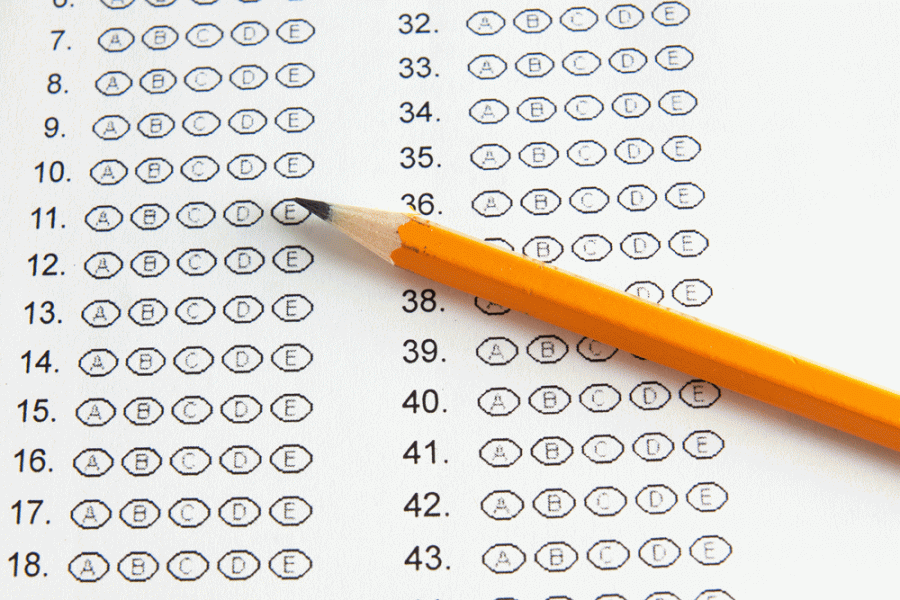Change of Plans
Students adjust to a fluid college admissions environment
Photo: Geoffrey Whiteway/Pexels
Changes in college admissions has caused many universities to go test-optional. Students at University Prep have had to adapt to a flexible admissions environment.
In light of the ongoing COVID-19 pandemic and uncertainties looming over the future, the question remains: “What about college?”
For juniors and seniors, this period of social isolation has derailed plans to visit colleges and take standardized tests.
“I had planned to go on college tours for schools on the East Coast over spring break. Unfortunately, we had to cancel those due to the virus,” junior Ashlyn Kilbourne said. “I will have to wait until fall next year to visit, or if the pandemic continues, possibly not even have the chance to go at all.”
Junior year is a time for students to start thinking about colleges and begin the process of touring colleges and universities that match their interests, career paths and goals. Although many colleges are posting virtual information sessions and tours of the campus, they do not equal the experience of in-person visits and building connections with members of the campus.
“It’s been a great resource to see colleges online, but definitely isn’t the same as being there in person which is an important part of deciding whether it would be the right place for me,” Kilbourne said.
Not only is junior year critical in terms of college prep, it is also especially academically rigorous and an important factor in college admissions. Teachers are having to figure out how to adjust their plans for an optimal online experience for their students.
“I think that the school and my teachers have been doing a great job continuing with their curriculum,” Kilbourne said. “There are definitely parts of the classes that the teachers will have to cut out, but I still think I am getting a great education this year.”
For seniors, this pandemic has affected final visits to colleges where students were accepted, meetings with new classmates, summer plans and preparations for a new chapter of life.
“There was supposed to be an admitted student day which got canceled due to COVID. I was really looking forward to making lots of new friends and meeting new people, but I guess that will have to wait till August,” senior Kodaran Anand said. Anand will be attending Washington University in St. Louis.
Seniors have the option to take a gap year to explore employment, travel and community service and instead begin their freshman year of college a year later. However, with the pandemic, it is hard to say whether students will choose this option if there are continued restrictions on large gatherings and travel.
“Since there isn’t much hope of traveling or working in the coming year, I am probably not going to take a gap year even if school does start online,” senior Sara Colando said. Colando will be attending Pomona College.
Director of College Counseling and Student Services Kelly Herrington believes that COVID-19 might potentially influence the number of students who choose to accept admission to colleges and universities.
“Given the financial uncertainty of today’s economic climate and the inability of students to tour final college options, few colleges have yield models with both of these factors built in,” Herrington said. “That’s why we suspect there might be more use of waitlists than we have seen in previous years.”
There are many decisions colleges will have to make, such as start dates for the 2020-21 school year and standardized testing requirements. Additionally, the shift to online learning has also impacted Advanced Placement testing, which will now be online with updated guidelines.
“My plan was to get 5s on all my APs so that I can skip a couple of core classes at WashU. But, with exams being online and only 45 minutes for two questions, I think it will be harder to earn a 5 because there is less room for error,” Anand said.
In regards to SAT and ACT exams, many colleges are choosing to become test-optional for admission. Junior Laila Rhenifel has not taken her SAT yet and worries about the implications of taking it versus not taking it during this pandemic.
“I know that this will affect some students very negatively if they’re relying on test grades to help show their academic abilities,” Rhenifel said. “I am also worried that students who have taken the test and did well will be able to submit their scores, leaving a disadvantage for other people applying.”
Considering that it may be challenging to predict how the pandemic will continue to affect juniors and seniors, the unknowns remain daunting.
“It is weird to me that, as of now, I do not know where [and] what many of my peers will be doing next year, even though I have known them for a couple years,” Colando said.
Your donation will support the student journalists of UPrep.


